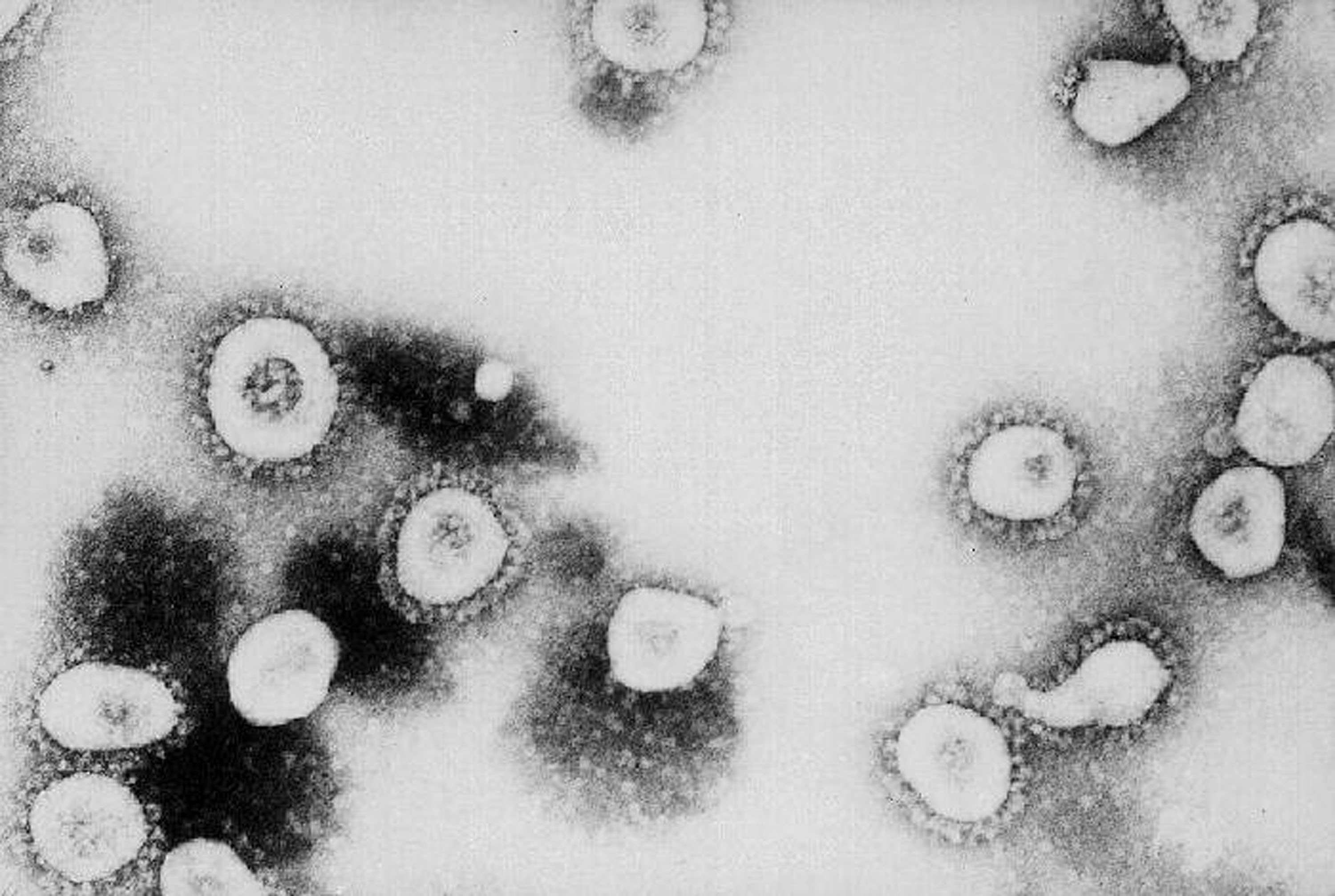The viral test
To limit Covid-19's spread, Americans will need social cohesion and smart leadership


A free daily email with the biggest news stories of the day – and the best features from TheWeek.com
You are now subscribed
Your newsletter sign-up was successful
This is the editor’s letter in the current issue of The Week magazine.
Viruses, strictly speaking, are not alive. They are tiny sets of genes bundled within protein shells, with one singular function — to replicate. Lacking cells or other common features of living organisms, viruses are parasitic zombies. They infect living cells, hijack the genetic machinery, and mass-produce replicas of themselves. (A single sneeze can release 100,000 viruses into the air.) The common cold is a virus, and so are influenza, measles, HIV, and Ebola. The new coronavirus, Covid-19, has joined the list of humanity's viral scourges, after apparently jumping species from its original host, bats. It has sickened more than 80,000 people and, infectious-disease experts say, it's coming to America. One way or another, it will affect all of our lives.
As Covid-19 relentlessly advances, there is much scientists and doctors do not yet understand. Infection produces widely varying responses. Some people have no symptoms, but can still transmit the virus to others. A majority suffer only mild respiratory distress. Others become severely sick, with flu-like aches and high fever and pneumonia. Deaths occur when the infections trigger an out-of-control immune response, creating a "cytokine storm" that inflames and shuts down the lungs. Scientists estimate a mortality rate of 2 to 3 percent. If there are major outbreaks in the U.S., authorities may discourage people from congregating in crowds, and may temporarily shut schools and curtail travel. The economy could take a significant hit. Covid-19 may even have an unpredictable impact on the presidential race. Americans tend to overreact to such disruptions; protected by our oceans and relative affluence, we expect to be exempt from problems affecting places like China and Italy. Now we face a mindless invader thousands of times smaller than a grain of sand — one that knows no national boundaries. Covid-19 will test our strength, our social cohesion, and our leaders.
The Week
Escape your echo chamber. Get the facts behind the news, plus analysis from multiple perspectives.

Sign up for The Week's Free Newsletters
From our morning news briefing to a weekly Good News Newsletter, get the best of The Week delivered directly to your inbox.
From our morning news briefing to a weekly Good News Newsletter, get the best of The Week delivered directly to your inbox.
A free daily email with the biggest news stories of the day – and the best features from TheWeek.com
William Falk is editor-in-chief of The Week, and has held that role since the magazine's first issue in 2001. He has previously been a reporter, columnist, and editor at the Gannett Westchester Newspapers and at Newsday, where he was part of two reporting teams that won Pulitzer Prizes.
-
 Bad Bunny’s Super Bowl: A win for unity
Bad Bunny’s Super Bowl: A win for unityFeature The global superstar's halftime show was a celebration for everyone to enjoy
-
 Book reviews: ‘Bonfire of the Murdochs’ and ‘The Typewriter and the Guillotine’
Book reviews: ‘Bonfire of the Murdochs’ and ‘The Typewriter and the Guillotine’Feature New insights into the Murdoch family’s turmoil and a renowned journalist’s time in pre-World War II Paris
-
 Witkoff and Kushner tackle Ukraine, Iran in Geneva
Witkoff and Kushner tackle Ukraine, Iran in GenevaSpeed Read Steve Witkoff and Jared Kushner held negotiations aimed at securing a nuclear deal with Iran and an end to Russia’s war in Ukraine
-
 Epstein files topple law CEO, roil UK government
Epstein files topple law CEO, roil UK governmentSpeed Read Peter Mandelson, Britain’s former ambassador to the US, is caught up in the scandal
-
 Iran and US prepare to meet after skirmishes
Iran and US prepare to meet after skirmishesSpeed Read The incident comes amid heightened tensions in the Middle East
-
 Israel retrieves final hostage’s body from Gaza
Israel retrieves final hostage’s body from GazaSpeed Read The 24-year-old police officer was killed during the initial Hamas attack
-
 China’s Xi targets top general in growing purge
China’s Xi targets top general in growing purgeSpeed Read Zhang Youxia is being investigated over ‘grave violations’ of the law
-
 Panama and Canada are negotiating over a crucial copper mine
Panama and Canada are negotiating over a crucial copper mineIn the Spotlight Panama is set to make a final decision on the mine this summer
-
 Why Greenland’s natural resources are nearly impossible to mine
Why Greenland’s natural resources are nearly impossible to mineThe Explainer The country’s natural landscape makes the task extremely difficult
-
 Iran cuts internet as protests escalate
Iran cuts internet as protests escalateSpeed Reada Government buildings across the country have been set on fire
-
 US nabs ‘shadow’ tanker claimed by Russia
US nabs ‘shadow’ tanker claimed by RussiaSpeed Read The ship was one of two vessels seized by the US military
